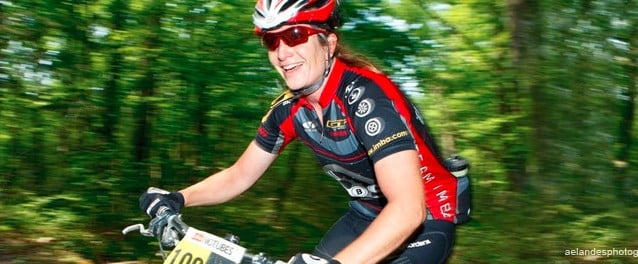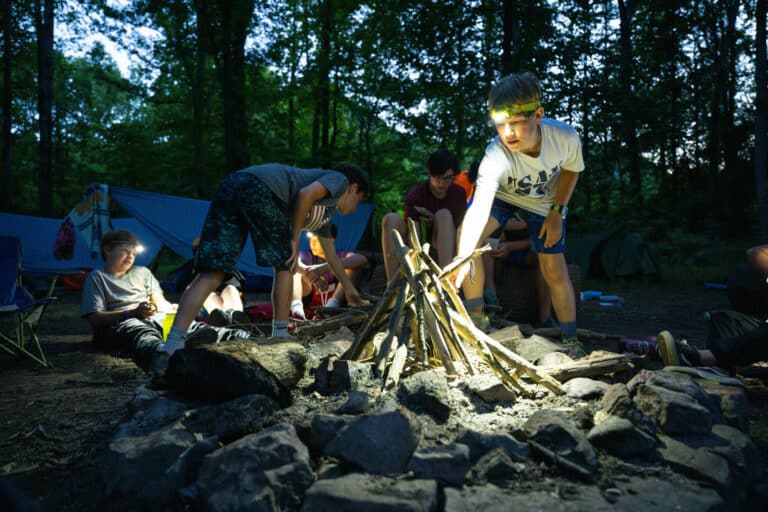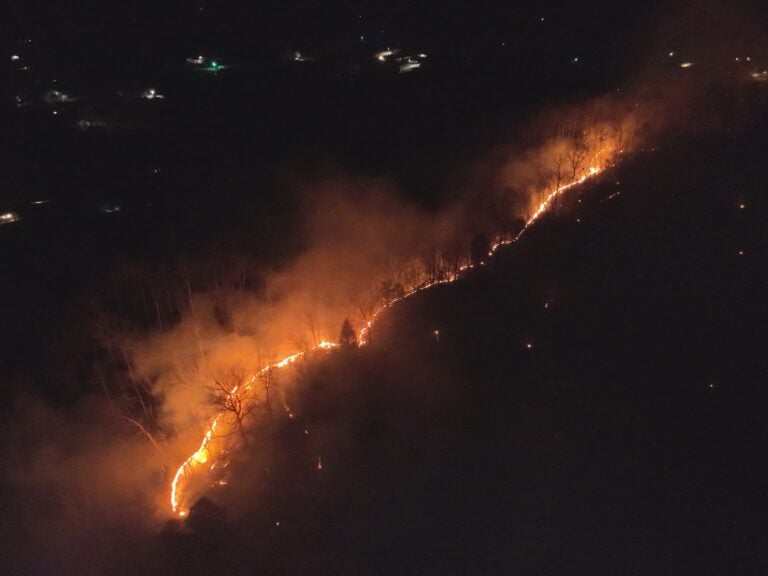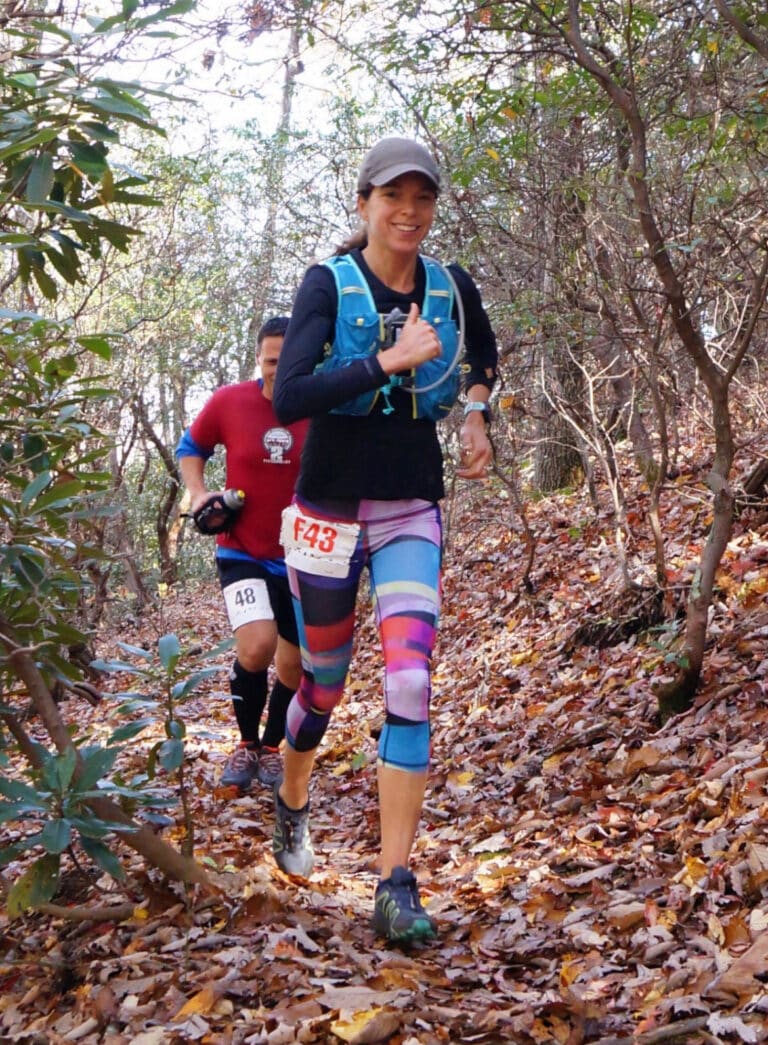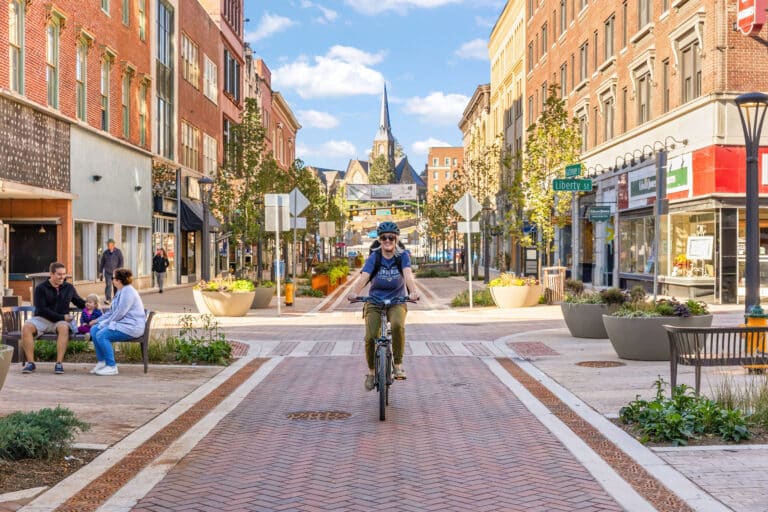Sue Haywood has raced for more than 20 years and competed as a professional for more than 14 in regional, national, and World Cup circuits. Sue has four National Championships under her belt and a World Championship in 24 hour solo racing. Sue rides rocks, but she also coaches other mountain bikers, makes her own salsa, and lives in perhaps one of the greatest mountain biking destinations in the country, Canaan Valley in West Virginia. We talked with Sue about mountain bikes, races, and what it’s like to make your passion a competitive sport.
When did you first ride a mountain bike?
I went to West Virginia University and some friends had bikes. They were talking it up. I begged my dad to buy my one that summer. I got an antelope 820, Trek, rigid. I took it back to WVU that fall and started mountain biking with friends. Before that, I had a ten-speed. In the summers I would ride to the pool with it but I wouldn’t say I was into mountain biking.
Right now, what is your favorite mountain bike race?
Lately, I have been enjoying these backcountry Enduro races. Chris Scott always puts on some really great races. He does the Shenandoah 100 and the Wilderness 101. Those races always have a great vibe. The courses are really well maintained. You can’t put on a great race alone and it can be tough to draw people in to volunteer for races. There are always people who are willing to come pay to race but one of the signs of a great race is when you have really awesome volunteers. Those volunteers are so important on long distance endurance racing. It’s priceless when you’re suffering and you reach an aid station and you are approached by a volunteer who knows how to help and feed you. You can’t pay people to have that kind of attitude. Volunteers like that are there because they want to be there.
What were some great races in early years?
I cut my teeth on the West Virginia Mountain Bike Series races. That is where I learned to race. Most weekends in the summer in those early days, I was always going to a WVMB race and I always had a couple of girls I really duked it out with. I would win a race then the next race Kathy Smith would win or Missy Showman. It taught me a lot about strategy. Winning then losing the next week, that’s how you learn. And still to be friends through it all.
What’s your favorite thing to eat after a race?
French fries maybe with some Sriracha sauce.
How do you train for a big race?
I don’t train as much as I use to. It’s always great to have a coach. My big race for this year is the Trans-Sylvania Mountain Bike Epic, a seven-day race. This will be my fourth time. You need a lot of rides in the mountains to get your body strong. Road riding is also important for mountain bike racing. For me it helps a lot because I don’t have a fast spin. I am a pedal masher. I’d rather mash and coast then constantly pedal. That can be pretty slow. Road biking helps me to keep my peddling up.
How would you describe your biking style?
I like to ride rocks. I can pick a good line but I can still only do half the stuff that I see in my head like manualing over some rocks or hitting a little jump for extra credit. That is the stuff you don’t have to do but you want to because you can see the line. That can be frustrating because sometimes you’re scared or don’t think you can do it. I think hitting rocks and technical mud riding is home for me. I was lucky to learn how to mountain bike in West Virginia. It makes you tough. I’m a good rider for a girl but I always want the bike to go faster.
What kind of bikes do you ride?
I have a Trigger 27.5. That’s 130 in front and in the rear the travel changes from 130 to 80. I also have a Scalpel for cross-country racing.
Are you still coaching?
Yeah, I do more skills coaching. I’m not coaching anyone right now but would like to. I focus on body position: how to be on your bike, hold your handle bars, where to look on the trail, how to put your weight on your feet. Then working on weight shift like how to take a drop or how to move yourself in relation to your bike.
If you could only bike one trail for the rest of your life, which one would it be?
Well, I’ll have to go local because I might as well be right at home riding trail right out my door. It’s called Green Trail in Canaan Heights where I live. It’s two miles from Davis, W.Va. There’s another one across the street too that has a better view called Bear Den Ridge.
What was your experience like competing for a spot on the 2004 American Olympic mountain bike team?
That level of racing becomes your whole life. Everything you think about has to be related to that goal. You’re saying “no” to a lot to friends and family and “yes” to coaches. It’s high stress. Cortisol levels through the roof. Your whole self-worth is based on your results. Especially that year, while competing for the Olympic spot every point counted. That’s all you can think about. You want to relax so you can do your best but it can be really hard sometimes to get out of your own way. Your mind gets so wrapped up in it.
Do you have any methods for blocking stress?
I had a nightly yoga routine. That really helped. Just to be able to laugh with your buddies is a huge stress reliever. Unfortunately, that year there wasn’t enough laughter. If there is one thing I could get on demand to help me relax it would be silly, stupid, laughter.
Victory is not something everyone can achieve but that’s why the ones who can do it under such great pressure deserve it. I was able to watch one of my teammates, Lea Davison, in the 2012 Olympics. I had some frequent flyer miles so I came to watch her. It was closure for me. I remember watching Georgia Gould’s face at the starting line and thinking she looked primed, the excitement levels were just where they needed to be. She didn’t have that look of fear and she went on to get the bronze medal. It’s easier to think, “relax” but it’s much harder to do it. That’s why you can’t just take someone’s race times. Racing is so much more than your numbers. It’s also how you react to that stress. Yoga and laughter, that’s why you’ve got to have funny people in your life.
But it is still a mystery why some people go pro while there are others who are just as good but chose not to do it. I’m still racing of course but sometimes I’m not sure why when I could just go out and ride for fun. It’s something deep in there that needs to be scratched or something.
Do you road bike?
I think a true biker has got to do some road riding. I would describe my road riding as mountain riding. I’m not afraid to go on gravel. I like steep climbs out of the saddle. Back in the day I did several road races but I’ve always been a mountain biker at heart. There’s something really fun about the amount of distance you can cover on a road bike and your clothes don’t even get dirty.
What is it about mountain biking that makes it different from other types of cycling?
Being on a trail puts a rider close to nature. Most the mountain bikers I ride with are also really interested in scenery. When you’re road biking you might be more concerned with speed. Mountain biking gives you a lot of sensory feedback. Especially here in Canaan, W.Va., it’s so beautiful. I ride a lot with my dog, Lona. She’s a mix between Australian Shepherd and Border Collie. A great trail dog.
Have you ever or do you know anyone who has ever been hit by a bear while mountain biking?
We were riding Braley’s Pond in Harrisonburg. All the riders were good friends and we were ripping down the trail. A couple of us were behind but we heard yelling. Our friend Michael Carpenter was shouting, “Bear, bear, bear!” He was stumbling—probably in shock (he was just hit by a bear on the trail) and he sat down on a hive of ground bees and then he kept on saying, “Bee, bee, bee!” He had some bad bone bruising and made so much noise about it. Now, he is obviously a legend forever because he tangled with a bear and the bees.
